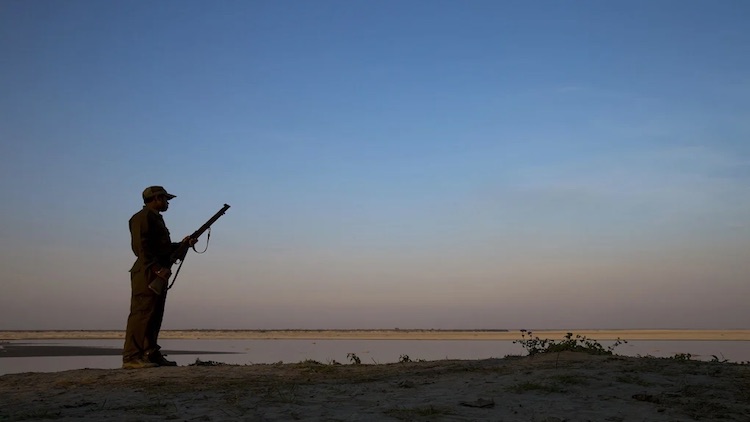Poaching Spikes Amid Lockdown In South Asia

By Adeel Saeed; Neha Sinha; A R Joshi; Nazmun Naher Shishir/thethirdpole.net
As countries in South Asia went into lockdown to curb the spread of coronavirus, criminals in the illegal wildlife trade took advantage. With authorities focused on enforcing lockdown restrictions, poachers felt less likely to be caught.
As a result, authorities in India, Pakistan and Nepal said there was a surge in illegal hunting, including of endangered animals and rare birds. To make matters worse, the economic consequences of the Covid-19 lockdown also saw people who had lost their livelihoods turn to poaching to support themselves. The trend follows what has already been confirmed in Southeast Asia, Africa, Brazil and Colombia: that poaching and deforestation increased since Covid-19 restrictions went into effect around the world. Joseph Walston, the head of conservation of the Wildlife Conservation Society noted that, “In places like Southeast Asia, there’s this huge urban-to-rural migration where people have lost their jobs in the cities overnight. They’re now having to depend on poaching, logging or other activities that are degrading nature because they have no other option.” This is just as true in South Asia. In India, an increase in reported poaching may be only the tip of the iceberg, say conservationists. In Pakistan, officials report a record number of cases registered for illegal hunting in the March to April period. In Nepal, one of the most worrying cases of poaching has surfaced in recent years. Bangladesh is the only country that has reported a decrease in poaching incidents, though conservationists remain concerned about the threat to wildlife. While these countries have battled the illegal wildlife trade for many years, the recent lockdown has shown that the black market are well entrenched.
As a result, authorities in India, Pakistan and Nepal said there was a surge in illegal hunting, including of endangered animals and rare birds. To make matters worse, the economic consequences of the Covid-19 lockdown also saw people who had lost their livelihoods turn to poaching to support themselves. The trend follows what has already been confirmed in Southeast Asia, Africa, Brazil and Colombia: that poaching and deforestation increased since Covid-19 restrictions went into effect around the world. Joseph Walston, the head of conservation of the Wildlife Conservation Society noted that, “In places like Southeast Asia, there’s this huge urban-to-rural migration where people have lost their jobs in the cities overnight. They’re now having to depend on poaching, logging or other activities that are degrading nature because they have no other option.” This is just as true in South Asia. In India, an increase in reported poaching may be only the tip of the iceberg, say conservationists. In Pakistan, officials report a record number of cases registered for illegal hunting in the March to April period. In Nepal, one of the most worrying cases of poaching has surfaced in recent years. Bangladesh is the only country that has reported a decrease in poaching incidents, though conservationists remain concerned about the threat to wildlife. While these countries have battled the illegal wildlife trade for many years, the recent lockdown has shown that the black market are well entrenched.



Latest Videos
















